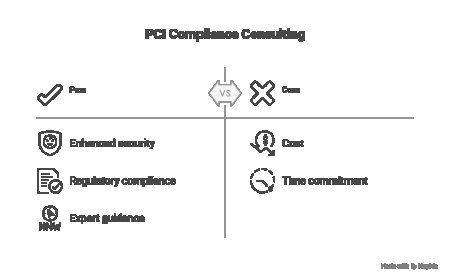Why Managed Cloud Services Are Essential for Scalable, Secure Growth
From seamless cloud migration and DevOps automation to advanced security and cost control, these services give organizations the tools to grow with confidence in an unpredictable market.

Todays digital economy rewards agility, scalability, and speed. To keep pace, organizations must evolve their IT operations to match the demands of modern users and markets. From high-growth startups to global enterprises, businesses are shifting away from rigid, on-premise infrastructure and embracing flexible, cloud-first architectures. But simply migrating to the cloud is not enough. To fully realize its benefits, companies must implement comprehensive management strategies that prioritize performance, security, and reliability.
This is where Managed Cloud Services come into play. These solutions help businesses navigate the complexity of cloud adoption while ensuring optimal performance, cost-efficiency, and compliance. Whether managing public, private, or hybrid cloud environments, these services offer end-to-end support that enables digital transformation at scalewithout the typical overhead.
What Are Managed Cloud Services?
Managed cloud services refer to the outsourcing of daily IT management and support for cloud-based resources and infrastructure. These services are designed to automate, monitor, and optimize cloud operations while addressing critical areas such as security, compliance, and performance tuning.
Core offerings include:
-
Cloud architecture design and deployment
-
Infrastructure monitoring and automation
-
Data backup and disaster recovery
-
Cost optimization and usage analysis
-
Identity, access, and policy management
Partnering with a managed service provider allows organizations to unlock the full power of the cloud while minimizing the risks and complexities that come with in-house management.
Driving Growth Through Cloud Transformation
One of the primary reasons companies adopt cloud computing is to drive digital transformation. Cloud platforms provide a foundation for launching new services, scaling infrastructure instantly, and accessing powerful tools for AI, analytics, and automation. However, unlocking this potential requires a strategic approach.
Managed cloud services support cloud transformation initiatives by aligning technology decisions with business outcomes. From the initial assessment phase to full-scale migration and optimization, these services provide expertise across every layer of the cloud stack.
Benefits of managed cloud transformation include:
-
Faster time to market for new digital services
-
Better resource utilization through autoscaling and optimization
-
Improved user experiences with low-latency architecture
-
Reduced capital expenditure by moving to an OPEX model
Cloud transformation is not a one-time eventits a continuous evolution. Managed services ensure that infrastructure adapts alongside business goals.
Seamless Cloud Migration Without Downtime
Migrating applications, data, and workloads to the cloud can be a complex process. Without the right strategy and support, businesses risk downtime, data loss, and misconfigurations. Managed services provide a structured, low-risk approach to cloud migration, allowing companies to move at their own pace with expert guidance.
Migration services include:
-
Infrastructure assessment and workload analysis
-
Selection of the right cloud model (public, private, hybrid)
-
Secure data transfer and validation
-
Application refactoring and modernization
-
Post-migration testing and performance tuning
A well-executed migration plan minimizes business disruption and sets the stage for scalable, efficient operations. Managed cloud teams also ensure that systems are monitored and maintained after migration to avoid performance degradation or security gaps.
Enhancing Operational Efficiency with DevOps
In todays competitive environment, businesses need to innovate rapidly and deliver software continuously. DevOps practices, when paired with managed services, enable faster development cycles, automated deployments, and more reliable infrastructure management.
With the support of managed DevOps services, organizations can:
-
Implement CI/CD pipelines for frequent, reliable releases
-
Automate testing, provisioning, and deployment workflows
-
Monitor application performance in real-time
-
Integrate security directly into the development lifecycle
DevOps not only accelerates software delivery but also improves collaboration between development and operations teams. Managed providers help businesses adopt best practices without needing to build everything from scratch internally.
Proactive Security in the Cloud Era
As businesses move critical workloads to the cloud, the security landscape becomes more complex. Cloud environments are vulnerable to a wide range of threats, including misconfigured access controls, data breaches, and malicious attacks. A proactive, integrated approach to cloud security is essential for compliance and risk mitigation.
Managed cloud services include built-in security capabilities such as:
-
End-to-end encryption for data in transit and at rest
-
Role-based access controls and identity federation
-
Network firewalls and intrusion detection systems
-
Regular patching, vulnerability scanning, and audits
Security is not a bolt-on featureit must be part of the infrastructures design. Managed services ensure that every cloud component is hardened and monitored 24/7 for potential threats. They also assist in meeting regulatory requirements like GDPR, HIPAA, SOC 2, and more.
Scaling Infrastructure Without Complexity
One of the clouds biggest advantages is scalability. Whether you're preparing for peak traffic during a product launch or expanding into a new market, the cloud allows you to adjust capacity quickly and cost-effectively. But managing this scalability manually can be error-prone and inefficient.
With cloud engineering as part of a managed services strategy, businesses can build environments that scale automatically based on traffic, performance, or usage metrics. This means better resource utilization and lower operating costs.
Key features include:
-
Autoscaling of virtual machines and containers
-
Load balancing and high availability architecture
-
Serverless computing for event-driven workloads
-
Infrastructure-as-Code (IaC) for repeatable deployments
By automating scalability, businesses maintain performance during traffic spikes and reduce expenses during low-usage periods.
Business Continuity and Disaster Recovery
Outageswhether caused by human error, hardware failure, or cyberattackscan have serious consequences. Businesses that lack a proper disaster recovery plan risk losing revenue, data, and customer trust. Managed cloud services address this challenge by offering resilient, automated disaster recovery (DR) and backup strategies.
Capabilities include:
-
Continuous backup of critical data
-
Cross-region replication for geographical redundancy
-
Automated failover and recovery
-
Regular DR testing and verification
With built-in business continuity, organizations can maintain uptime and service availability even under adverse conditions.
The Long-Term Value of Managed Cloud Partnerships
Adopting managed cloud services isnt just about technical supportits about unlocking strategic value. Businesses that invest in long-term partnerships with cloud experts gain access to best practices, emerging tools, and ongoing optimization.
Benefits of long-term collaboration include:
-
Regular architecture reviews and updates
-
Access to new technologies like AI/ML, containers, and edge computing
-
Consistent cost governance and usage forecasting
-
Strategic roadmapping aligned with business goals
A trusted managed cloud partner acts as an extension of your team, ensuring that technology continuously supports growth and innovation.
Conclusion: Elevate Your Business with Managed Cloud Services
The cloud has revolutionized how businesses build, deploy, and scale digital solutions. But without expert management, it can quickly become a source of complexity, cost, and risk. Managed Cloud Services offer the strategic, technical, and operational support needed to transform the cloud into a true business enabler.
From seamless cloud migration and DevOps automation to advanced security and cost control, these services give organizations the tools to grow with confidence in an unpredictable market.
If youre ready to modernize your infrastructure, secure your data, and accelerate your digital transformation journey, partnering with managed cloud experts is the smartest next step.








































